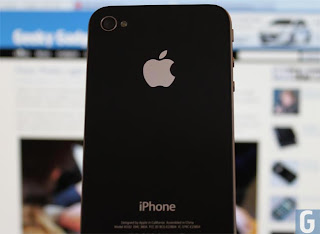 For those, who have been waiting around for an unlocking solution that supports iPhone 3GS, iPhone 4 or iPhone 4S (CDMA+GSM) on any firmware previously mentioned iOS 5.0 and also on any baseband, here is some true very good news.
For those, who have been waiting around for an unlocking solution that supports iPhone 3GS, iPhone 4 or iPhone 4S (CDMA+GSM) on any firmware previously mentioned iOS 5.0 and also on any baseband, here is some true very good news. iPhone Dev Team's MuscleNerd has confirmed that a Chinese researcher named Loktar_Sun has uncovered a method that permits unlocking any design of the iPhone on any baseband with the assist of the Subscriber Synthetic Module (SAM) by Sam Bingner. MuscleNerd took to his Twitter account and said that he was in a position to unlock his T-Mobile iPhone 4S with the method.
"That strategy worked for T-Mobile on my 4S. Almost Certainly expect an update to SAM from @sbingner to incorporate that trick from Loktar_Sun," MuscleNerd tweeted.
Before likely ahead with the unlocking process, end users ought to be mindful of some of the details:
Users want to have a jailbroken iPhone, which is not detailed on any IMEI blacklists.
Users want to make certain that the latest edition of iTunes is installed. They must also know which provider their iPhone is locked into.
The method makes a ticket that is valid to the SIM card used throughout the process, which means that if anyone wishes to use some other SIM card in the unlocked iPhone, the procedure desires to be repeated with the new card.
Step 1: Open up Cydia on the jailbroken iPhone and include the official repository for the SAM package. The repo URL is "http://repo.bingner.com" and includes the official up to date SAM package and the needed dependencies.
Step 2: The Moment the repo is added, go to the sources web page by simply tapping on it from the record of mounted source. Now uncover the SAM package deal and install it to your iPhone. Make confident that the SIM card you would like to use on your unlocked iPhone is inserted in the iPhone.
Step 3: Now launch the SAM interface by tapping the SAMPrefs icon on your Springboard, or by discovering the SAM preferences bundle through the Settings.app.
Step 4: Following SAM has been launched, go into the "Utilities" tab and then tap on the "De-Activate iPhone" option. To ambigu check out that the iPhone is genuinely de-activated, return to the principal options menu and go into the "More Information" tab. Appear at the "ActivationState" label and it ought to exhibit as "Unactivated."
Step 5: Go again to the major settings pane and then into the Method tab in which you will require to select the "By Country and Carrier" option. Now select the Nation you are heading to be making use of your iPhone in and then your real Carrier.
Be mindful that some networks function with far more than a single network ID. In such cases, you require to decide on the "SIM ID" option.
Step 6: Go to "More Information" and make a copy of the "IMSI number" that is current in the "SAM Details" section.
Step 7: Faucet on the "Spoof True SIM to SAM" and go back again to the main SAM display screen and adjust "Method" to manual. Soon After deciding on the guide selection and returning to the principal screen, you will discover an IMSI input field. Paste the IMSI range you copied in the prior step.
Step 8: Hook Up the iPhone to the laptop or computer utilizing the USB cable and use iTunes to re-activate the phone. After iTunes re-activates the iPhone, double click on the Phone Range label located in the facts pane and guarantee the shown ICCID matches that are discovered on the SIM card. If the strings do not match, you are going to have to repeat the approach from the beginning.
Step 9: If the strings match, you will want to unplug your iPhone, go again into "SAMPrefs" and disable SAM by sliding the Enabled button to the off position. Now, re-connect the iPhone to iTunes and do not panic if error messages pop-up declaring that the gadget cannot be activated. This error is normal and needs iTunes to be shut down and then restarted.
Step 10: Following a couple of minutes you really should notice signal bars on your iPhone, meaning the method has been successful.
In case the push notifications don't work, you can resolve the issue by selecting the "Clear Push" selection identified in SAM and then re-connecting the iPhone to iTunes.
After successfully unlocking the iPhone employing this method, customers are also suggested to help save the activation ticket produced because of to the reality that it could demonstrate essential in the long term to maintain your unlock. This Is the process to manually save activation ticket.
Step 1: An unlock ticket will be produced right after you successfully comply with actions 1-10 outlined above.
Step 2: Use an SSH program to accessibility your iPhone's filesystem (WinSCP Windows or Cyberduck Mac OS X). You can also use some thing like iFile on your real iPhone.
Step 3: Navigate to "/var/Root/ibrary/Lockdown" and make a duplicate of almost everything that is found in that directory for each and every SIM card you unlock your iPhone with.









 Posted in:
Posted in: 





